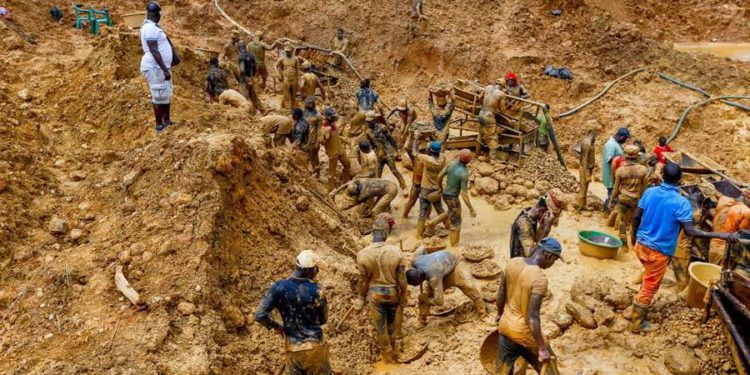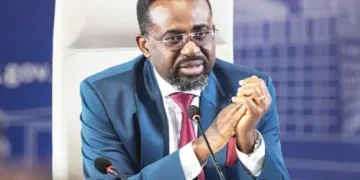Coalition of CSOs Issue Four Demands for Action Against Galamsey Menace
The Coalition of Civil Society Organizations (CSOs) focused on Extractives, Anti-Corruption, and Good Governance, has issued a set of demands to the government calling for urgent action to combat the rampant illegal mining activities that have severely impacted the country’s environment.
The Coalition making the demands during the Africa Water Week Partners Press Engagement on Galamsey on Monday, October 28, quipped it aims to confront head-on the political economy enabler of galamsey which has thwarted successive governments’ efforts to contain the canker.
Citing a recent report by the Fourth Estate, the Coalition pointed to the involvement of state actors and local government authorities in facilitating illegal mining operations within forest reserves, thus raising serious questions about the integrity of the government’s response to galamsey.
Furthermore, the Coalition referenced investigations by Tiger Eye P.I., which have implicated members of the Inter-Ministerial Committee in receiving bribes to shield illegal mining activities, asserting that such revelations have severely eroded public trust in the government’s commitment to addressing the crisis and leading to widespread skepticism regarding its motives and actions.

Among the Coalition’s key demands was the revocation of all mining licenses issued for reconnaissance, prospecting, exploration, and mining activities in forest and protected areas. This demand underscores a growing concern over the degradation of Ghana’s natural resources and the threat posed by mining operations in ecologically sensitive regions.
The Coalition therefore highlighted the need for immediate action to safeguard the country’s remaining forest cover, which has suffered significantly from indiscriminate mining practices.
The second demand by the Coalition was the repeal of the Environmental Protection (Mining in Forest Reserves) Regulation 2022 (L.I. 2462). This regulation, which controversially allows mining in forest reserves, has been criticized for undermining previous protections and enabling the widespread destruction of Ghana’s forests.
The coalition argued that repealing this regulation is crucial to restoring public trust and demonstrating the government’s genuine commitment to environmental protection.
In addition to regulatory changes, the Coalition proposed the formation of a Multi-stakeholder Group to replace the existing Inter-Ministerial Committee on Illegal Mining. The Multi-stakeholder Group the Coalition asserts, will ensure a more collective and transparent approach to combating illegal mining as the Coalition believes that a diverse group of stakeholders can provide a more holistic understanding of the galamsey crisis and develop effective strategies to mitigate its impact.
Moreover, the Coalition as part of its four demands, urged the two main political parties in the country—the National Democratic Congress (NDC) and the New Patriotic Party (NPP)—to publicly commit to concrete and lasting measures aimed at eradicating illegal mining by next year – 2025.

The call by the Coalition for the two parties to commit to lasting measures aimed at addressing the galamsey menace reflects a growing sentiment among the public that political leaders must take definitive steps to resolve the illegal mining crisis.
The Coalition’s demands reflect a broader call for systemic reform and accountability in Ghana’s approach to illegal mining. The Coalition emphasizes that any meaningful commitment to combatting galamsey must address the underlying political and economic enablers that have allowed the menace to persist.
The Coalition of Civil Society Organizations (CSOs) focused on Extractives, Anti-Corruption, and Good Governance consist of the following CSOs:
- Africa Centre for Energy Policy (ACEP)
- Natural Resource Governance Institute (NRGI)
- iWatch Africa
- Ghana Anti-Corruption Coalition (GACC)
- SEND Ghana
- Third World Network Africa
- Revenue Mobilization Africa (RMA)
- Institute for Energy Security (IES)
- Centre for Extractives and Development Africa (CEDA)
- IMANI Centre for Policy and Education








